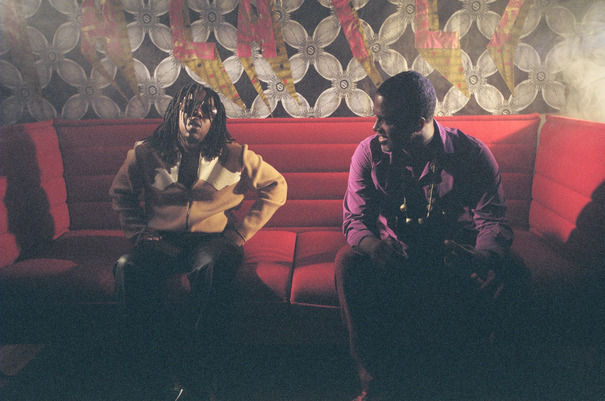
![]()
![]()
90% of double albums are failures. In more recent years, everyone from Foo Fighters to the Red Hot Chili Peppers have attempted to show off creatively by unleashing multi-disc efforts. Some claim the music is all thematically sound, tied to a concept or something else, and therefore entirely necessary to extend beyond your traditional single album length. Others say they went into the studio and got far more recorded than anticipated, and because everything was so great, instead of cutting tracks they just left it as-is, bleeding it out into dual records. You’ve also got a band like Radiohead, who made “Kid A” and released that, then followed up 8 months later on with “Amnesiac”, essentially more new songs from those same sessions but contextually different. A staggered release schedule forming two separate albums tends to be the smarter move, particularly in this day and age when albums are largely down for the count and singles reign, the attention span of music fans growing increasingly shorter by the day. Still, there is the occasional double album that works, generating enough positive response to go down with the status of “legendary”. We’re talking Pink Floyd’s “The Wall” or the Smashing Pumpkins’ “Mellon Collie and the Infinite Sadness”. It was reportedly that Pumpkins record which served as the main inspiration for M83’s main man Anthony Gonzalez to craft his own double album “Hurry Up, We’re Dreaming”. This may be one of the worst times in music trends to unleash 73 minutes of music intended to be heard in one sitting, but let’s just be thankful somebody has the balls to keep trying anyways.
The first thing you look for in any double album is filler. Instrumental tracks? That’s typically the first sign of filler, but if you know M83 then you also know they do a fair share of instrumentals on their single disc records. Their electro-synth sound is built to where instrumentals can be not only welcome, but sometimes encouraged. One listen to “Dead Cities, Red Seas & Lost Ghosts” will teach you all you need to know about M83 and instrumentals. There’s somewhere around a half dozen instrumentals spread across the 22 total tracks here, and almost all of them are wholly engaging or serve a particular purpose other than apparent filler. This isn’t a record with an overarching theme or concept holding it all together, outside of just a generalized dream state it otherwise seeks to achieve. Yet there are so many big pop songs and dramatic ballads that transitional pieces and more minor moments are almost required as balance. “Train to Pluton” or “Fountains” may not be the most exciting or brilliant pieces of music, but they are fully functional set-up pieces and never really hurt the overall pacing that gets established. You can also look at moments like “Where the Boats Go” and “When Will You Come Home?”, the former which aids the adjustment from the red hot “Reunion” into the massive drift that is “Wait” and the latter which serves as the start of a trio of songs that effortlessly blends the first disc with the second.
Long time fans of M83 should automatically feel comfortable with “Hurry Up, We’re Dreaming”, as the 80s synth-pop motifs continue to permeate everything Gonzalez touches. That’s his thing, crafting a soundtrack to an imagined version of his teenage years. The last record “Saturdays=Youth” felt like musical accompaniment to a long-lost John Hughes film, and while there’s still some resemblance to that on the new double album, it comes across as far less cinematic in nature. That doesn’t mean it’s any less expansive or epic though, as it’s tough to call 74 minutes of music minimal or small. But those bigger, arena-style melodies were explored in a similar fashion on “Dead Cities, Red Seas & Lost Ghosts”. To bring out the full M83 past album retrospective, fans of “Before the Dawn Heals Us” will find the darker, more urban pop of that record bearing an influence here as well. Darkness would be a theme on this record, as any record with the word “dreaming” in its title hopefully implies sleeping and night time. Despite all this looking back providing a “complete picture” of what M83 has been all about, there’s still the future to be concerned with. In response to that, Gonzalez has taken to expanding the number of instruments on this record to include the occasional saxophone (“Midnight City”) or flute (“New Map”) while pushing his own vocals into entirely new territory.
Past singles like “Kim & Jessie” or “Don’t Save Us From the Flames” provide great reference samples featuring Gonzalez keeping his vocals restrained at an almost whisper-like level. It becomes apparent from the very first track on the new album, the aptly titled “Intro”, that those days of calmly reserved, passive singing are over. Gonzalez’s voice may not be the most impressive thing when he’s belting out songs at full volume as his newfound range and key reveal some limitations, but you’ve got to give him credit for laying it all out there. He sounds a full octave higher than he used to, now fully up-front and brimming with confidence, taking the reins like he’s ready to conquer the world. For once his singing matches the scope of his arrangements, which is probably why cuts like “Midnight City” and “Steve McQueen” also make for some of M83’s best songs to date in a catalogue dense with highlights already.
If you’re not prepared for it, “Hurry Up, We’re Dreaming” might seem like a chore to listen to from start to finish. There’s so much material to digest that it can be a little overwhelming at times, making it that much harder to become enraptured with important moments because there are quite a few. To Gonzalez’s credit he spreads them out fairly evenly to continually engage the listener for the duration, though the first five tracks of each disc can feel like a pileup of pure sonic delight. There may not be a storyline or abstract concept linking these tracks together, but like the two halves of “Mellon Collie and the Infinite Sadness”, each separate disc has a sonic counterpart on the other. Consider them then like fraternal twins – different, but inextricably linked to one another. The more carefully you listen, the more obvious it becomes. It would seem then that going the double album route has worked out remarkably well for M83. Count this was one of those rare cases where a multi-disc effort is worth the time and money you invest in it. There are not really any bad songs in this bunch either, and even the child’s spoken word moments of “Raconte-Moi Une Histoire” can’t derail the momentum this beast generates for itself. Will it go down in history as one of those rare double albums that still gets talked about 5, 10 or 50 years down the line? Probably not, if only due to technology. Up until the early 00s, album releases were regarded as events, and people’s options were confined to physical mediums such as vinyl, cassette tapes and CDs. You couldn’t really skip any tracks on The Beatles’ “White Album” because at the time that luxury didn’t exist. With the advent of the digital era, not only are people skipping or cherry picking, but access to music itself has become so fluid there’s far more music to take in than any one person can even begin to digest. Hence the rise of the single, so we can listen to that song and get on to the next artist. But here’s a piece of work that while created today is distinctly 80s in sound and scope. If you’re a child of the 80s or earlier decades, that’s something you can understand, even as you may have a hard drive filled to the brim with other music. Calm yourself down and set aside 74 minutes to take in “Hurry Up, We’re Dreaming” at least once in full. Hopefully it will speak to you and maybe even reinstill a faith in the long player. The death of the album (single or double) has been greatly exaggerated, and M83 makes for some great evidence in support of that. Now if you’ll excuse me, I’m going to try and find the exact time when this album and the film “The NeverEnding Story” sync up perfectly.














